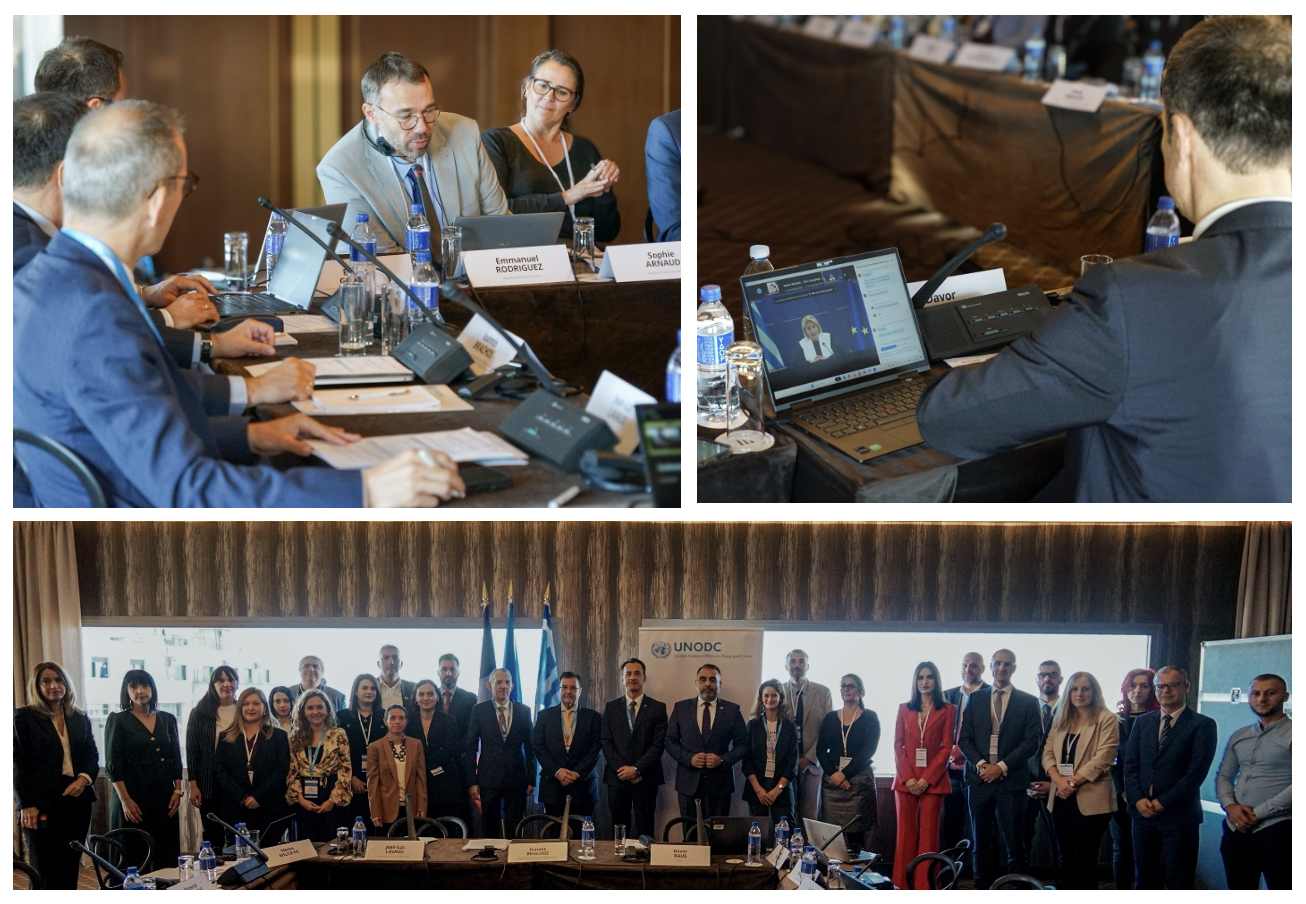UNODC Strengthens Efforts to Address Human Trafficking in the Context of Migration on the Balkan Route
23-24 October 2024, Thessaloniki, Greece: South-Eastern Europe (SEE) remains a critical transit zone for thousands of migrants passing through the region in search of safety and a better future, primarily in the European Union (EU).
“Migration is closely intertwined with the history of the Balkans and continues to play a key role at the present time. While systems are in place to combat human trafficking, our countries are challenged to prevent this crime and support victims”, stated Dr. Ioannis Brachos from the Office of Greece’s National Rapporteur on Trafficking in Human Beings at a recent regional expert meeting on the nexus between human trafficking and migration flows.
Held on 23-24 October 2024 in Thessaloniki, Greece, the meeting brought together criminal justice professionals, law enforcement and immigration officers, prosecutors, judges, and specialists working with trafficking victims from Albania, Bosnia and Herzegovina, Croatia, France, Greece, Kosovo (under UN Security Council Resolution 1244), Moldova, Montenegro, North Macedonia, Romania, Serbia, and Ukraine.
“The ongoing conflicts in Ukraine and the Middle East have created profound humanitarian crises with wide-reaching effects. These conflicts not only displace millions of people, forcing them to seek safety abroad, but also provide opportunities for criminal networks to exploit the vulnerabilities of those affected. As irregular migration intensifies, it poses serious risks to the safety and security of the SEE region”, stated Mr. Ilias Chatzis, Chief of the Human Trafficking and Migrant Smuggling Section at the United Nations Office on Drugs and Crime (UNODC).
Both the latest UNODC Global Report on Trafficking in Persons and the 2022 Study on the Scale and Scope of Human Trafficking in South-Eastern Europe found that trafficking is connected to migration, with migrants recruited for forced labour under abusive conditions and other forms of exploitation.

During the event, experts from UNHCR, FRONTEX, EUROPOL, the Mixed Migration Centre (MMC), the Migration, Asylum, Refugees Regional Initiative (MARRI), the Global Initiative against Transnational Organized Crime (GI-TOC), and the International Centre for Migration Policy Development (ICMPD), shared insights from the latest research on the migration-trafficking nexus. Additionally, NGO representatives from the Limbo Association – LIMBO (France), A21 (Greece), the "Animus Association" Foundation (Bulgaria), and ARSIS – Association for the Social Support of Youth (Thessaloniki area, Greece) presented their experiences and approaches in supporting victims of trafficking and smuggled migrants.
Participants agreed on the pressing need to improve victim identification, the functioning of referral mechanisms and related inter-institutional cooperation at both national and transnational levels. Other recommendations focused on the importance of allocating sufficient resources for long-term protection and victim assistance, as well as tackling human trafficking and migrant smuggling facilitated by online technologies, conducting more financial investigations, employing special investigative techniques, and confiscating assets acquired as a result of these crimes. Stakeholders also called for increased regional cooperation in accordance with the United Nations Convention against Transnational Organized Crime (UNTOC) and its Protocols, specifically the Protocol to Prevent, Suppress and Punish Trafficking in Persons, Especially Women and Children.
UNODC organized the regional expert meeting in collaboration with the Office of the National Rapporteur on Trafficking in Human Beings at the Greek Ministry of Foreign Affairs, and the General Secretariat for Vulnerable Persons and Institutional Protection of the Greek Ministry of Migration and Asylum, with financial support provided by the Ministry of Europe and Foreign Affairs of France.
The event is part of UNODC’s ongoing engagement to address human trafficking and migrant smuggling in SEE and achieve related Sustainable Development Goals, including efforts to enhance cross-border cooperation, train criminal justice practitioners, and improve financial and digital investigation capabilities.
